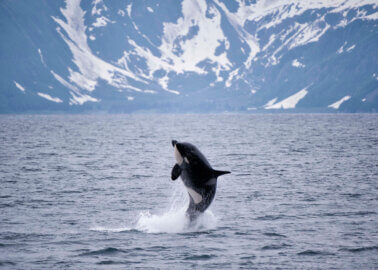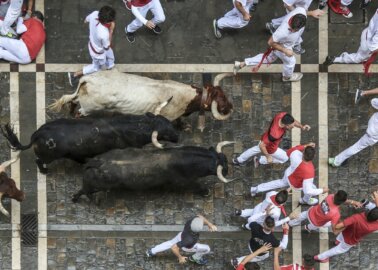Kohana: Third Orca in 18 Months Dies at Loro Parque
On 15 September, orca Kohana died at Loro Parque in Tenerife. She was just 20 years old – decades short of her natural life expectancy.

Stock orca image
She is the third orca to die at the facility in the last 18 months, following Ula, who was just 2 years old, and Skyla, who was 17.
Separated from her family and transported to Loro Parque from SeaWorld Orlando, Kohana spent years confined to a barren concrete tank filled with chemically treated water and was forced to perform demeaning tricks in exchange for food to entertain humans.
It’s tragic that she was never able to experience the feeling of freedom and that her only peace came through death. She deserved so much more.
Marine Parks Are Hellholes for Animals
Watch this footage, filmed just weeks before Kohana died, and see for yourself that Loro Parque is nothing but a prison:
Orcas are intelligent, sensitive animals, but at marine parks, they’re used as money-making machines, confined for decades – in isolation or in incompatible groups – to tanks around 10,000 times smaller than their natural home range.
How many more orcas will die at Loro Parque before this marine prison is shut down?
Stay Away From Marine Parks
Be a compassionate traveller and give all facilities that imprison wild animals for entertainment a wide berth. When booking your holidays, please choose one of the many tour operators that have committed to not selling tickets to this hellhole, like British Airways Holidays and Club Med.
Urge Companies to Cut Ties With Deadly Watery Prisons
It’s utterly shameful for Jet2holidays, a UK company, to continue to profit from the misery of these highly intelligent and social animals. Send its CEO a message now urging him to stop promoting and selling tickets to Loro Parque and other marine parks:
Help drive change across the travel industry by urging the British travel association ABTA to add the promotion of marine parks that exploit whales and dolphins to its “unacceptable practices” list:



